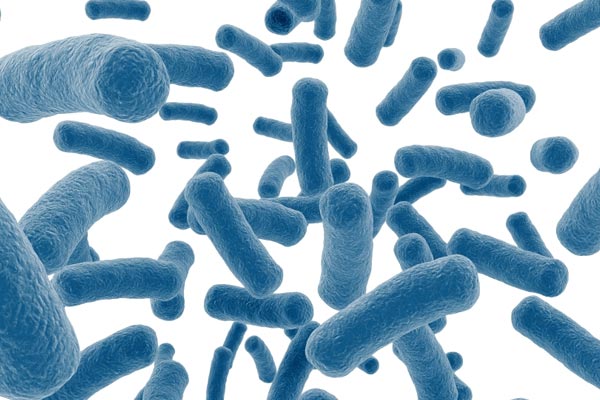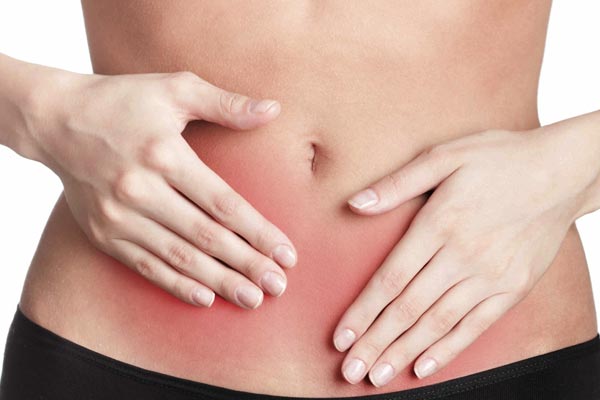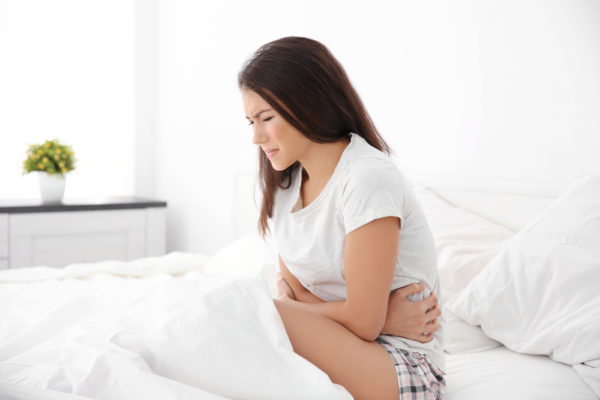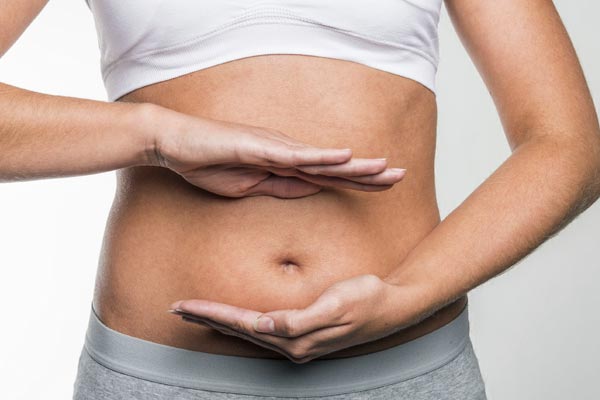Helpful Facts About Diagnosing and Healing Leaky Gut
Leaky gut is an incredibly common health condition. However, it remains well hidden from mainstream media.
In fact, many people who suffer from this condition have never even heard of it. What is leaky gut syndrome and how is it diagnosed?
What are the available treatment options for healing a leaky gut? How long does it take to heal leaky gut?
These are all likely questions that you have if you are hearing the term leaky gut for the first time and would like to learn more about this condition.
We will address these important questions in more detail below.
What is Leaky Gut Syndrome?
The small intestine is not an organ that is generally given a great deal of thought. However, it is an extremely important organ because it is where the majority of the vitamins and minerals are absorbed from the food that we consume.
These nutrients are required for energy production, maintenance of the immune system, and all the other vital functions of the body.
As the fingerlike projections that line the small intestine move food along the digestive tract, the vitamins and minerals are absorbed through small openings in the lining of the intestine.
These nutrients are then transferred to the bloodstream where they can be sent all over the body as needed.
Whenever an individual suffers from leaky gut, this normal functioning of the small intestine is disrupted.
The small openings lining the small intestine are only supposed to allow certain things to pass through.
In cases where an individual develops a leaky gut, these openings become too large.
Once they become larger in size, they allow various proteins, food particles, and toxins to pass through them and gain entry into the bloodstream.
Over time this can lead to an immune response in the body that is capable of creating many distressing symptoms.
Since the small intestine is responsible for at least 70% of the overall functioning of our immune system, the consequences of a poorly functioning intestinal tract can be devastating.
What are the Signs and Symptoms of Leaky Gut?
Different individuals experience leaky gut in different ways. According to the Mayo Clinic, some of the main physical symptoms of leaky gut are as follows.
- Symptoms of an irritable bowel such as intermittent constipation and diarrhea
- Sensitivities to foods such as gluten, soy, and dairy
- A propensity toward developing autoimmune diseases
- Lab-confirmed vitamin and nutrient deficiencies
- Skin conditions such as eczema or psoriasis
- Learning disabilities, developmental issues, or autism
- An imbalanced thyroid
It is important to keep in mind that not all symptoms need to be present for the problem of a leaky gut to exist.
In addition, symptoms can sometimes come and go. While all of these symptoms can certainly be attributed to other conditions, it is important to at least consider the possibility of a leaky gut diagnosis.
How is Leaky Gut Diagnosed?
According to Web MD, leaky gut is not even an official diagnosis that is taught in medical school at this time.
This is partly due to the fact that we have such a limited amount of information on this disease. For the most part, leaky gut remains a diagnosis of exclusion at this point.
This means that if your doctor is unable to find another specific reason for your symptoms, it is highly likely that you will be diagnosed with leaky gut due to other diseases and conditions being ruled out.
The most important thing to do if you are bothered by troublesome symptoms is to see your doctor promptly.
He or she can perform a variety of tests to discern if there any other underlying conditions that are causing your symptoms.
If none can be found, a diagnosis of leaky gut is likely. At that point, you can begin working on healing your gut from the inside out.
What is the Best Way to Heal Leaky Gut?
Begin an Elimination Diet
The diet that most of us consume today is far removed from that which our ancestors ate decades ago.
Today’s diet is full of heavily processed foods designed to remain shelf-stable for months or longer.
Added chemicals, sugars, artificial sweeteners, and other products can do a lot of damage to the lining of the gut.
An elimination diet is a great place to start on the journey toward healing. Begin by removing some of the most common food allergens that affect millions of people today.
These include foods containing soy, dairy, gluten, processed sugar, and various chemical additives.
An elimination diet can help you discern exactly which foods are causing you problems.
In order to perform an elimination diet effectively, you will discontinue consumption of a specific food for a two week period and then reintroduce it to your diet. Upon reintroduction of the food, be careful to note any side effects that occur.
Start Food Journaling
Food journaling is a part of an elimination diet, but it can also be an ongoing tool to determine how specific foods affect your body.
Food journaling is exactly what it sounds like. You simply write down each food you consume and how it makes you feel.
Foods that do not contribute to an overall sense of well-being can then be avoided.
Consume a Diet Rich in Whole Foods
By focusing on a whole foods diet, many foods that create issues for a large number of people will automatically be avoided.
Processed foods containing excessive amounts of sugar, chemicals, dyes, and other problematic ingredients are already eliminated by simply following a whole foods diet.
From there, further restrictions can be made as necessary to determine other foods that your body may be sensitive to.

Limit use of alcohol and aggravating medications
Alcohol and many forms of over-the-counter medications can be aggravating to the gut lining and taxing to the liver.
Even something as simple as NSAID pain-relieving medications can cause extensive damage to the lining of the gut that does not disappear as soon as you stop using the medication.
Limiting the use of these substances as much as possible encourages the development of a healthy gut lining.
Evaluate for the presence of parasites or gut infections
Intestinal infections and parasites are more common than a lot of people realize.
These conditions need to be ruled out before moving on to other causes of your intestinal distress.
The good news is that both infections and parasites are relatively easy to get rid of with the help of your physician.
How Long Does it Take to Heal Leaky Gut?
Getting to the root cause of your intestinal issues and healing the gut takes a considerable amount of time in most cases.
Your gut did not become damaged in one or two short months. It was likely a process that took years to get to the point of creating bothersome symptoms.
Therefore, it stands to reason that healing your gut will take time, strategic intervention, and diligence.
The reward will be well worth the planning and effort that you put into the healing process.
What are the Best Dietary Interventions for Healing Leaky Gut?
We have discussed several ways to get started in making alterations to your daily diet. These include following an elimination diet to pinpoint problem foods.
In addition, food journaling can be an ongoing task until you are aware of all the foods that trigger a response in your body.
Aside from these dietary interventions, you may be left wondering how to heal your gut through diet.
A clean gut diet can be an effective way to continue on your path toward gut health, but it can be confusing to know which one to follow.
Here are several clean gut diet choices and the benefits each one has to offer.
Whole Food Plant-Based Diet
When considering how to heal your gut, a whole food diet is at the top of the list. Many people may opt to completely cut all animal foods from their diet to focus on whole foods that contain a lot of fiber, nutrients, and minerals.
A plant-based diet of this nature typically contains little to no animal products at all.
This includes all forms of dairy, all types of meat, eggs, and foods that contain remnants of these products.
What ends up happening is the individual consumes large amounts of whole grains, legumes, leafy greens, vegetables, and fruits. All of these foods are high in fiber and promote healing of the gut lining.
GAPS Diet
The GAPS diet is often recommended for a leaky gut treatment as well. According to Dr. Axe, the GAPS diet is based closely on a diet that originated back in the 1920’s that has been known to have healing effects on the intestinal tract.
The GAPS diet helps repair the wall of the intestines, eliminate bad bacteria from the gut, and bring balance to the probiotics present in the intestinal tract.
When considering how to improve gut health naturally, the GAPS diet remains high on the list of good choices.
The premise of the GAPS diet is to focus on foods in the form as close to that present in nature as possible.
This means that foods such as conventional meat and dairy, chemical additives, grains, processed sugars, and starchy carbohydrates are all avoided.
The allowed foods on the GAPS diet include bone broth, non-starchy vegetables, wild meats and fish, free-range egg yolks, and fruits.
Fermented foods such as kefir, sauerkraut, and homemade yogurt are also highly recommended due to the beneficial bacteria these foods contain.
Paleo Diet
When considering how to improve gut health naturally, the Paleo diet also remains a common choice for many people.
According to Dr. Oz, the paleo diet is focused on getting back to our dietary roots and living off the land as our ancestors did before us.
Since this way of eating naturally cuts out many types of inflammatory foods, it can be very beneficial for a leaky gut treatment.
The Paleo diet foods in their natural form that our ancestors would have caught and eaten in the wild.
Therefore, foods such as eggs, bison, chicken, turkey, duck, nuts, vegetables, and fruits are all allowed foods in the paleo program.
Since you will be eating the way our ancestors in the Stone Age ate, you will avoid all processed foods that come in bags or boxes.
This already eliminates many of the inflammatory triggers that can cause issues with leaky gut for many individuals.
Proponents of the Paleo diet also advise avoiding most types of grains since these can also be a source of gut inflammation for many people.
As you can see, there are many similarities between these three dietary choices. All three of them have been used successfully in the treatment of a leaky gut.
How can you determine which one is right for you if they all produce positive results in those suffering from intestinal issues?
The best way to determine this would be to begin an elimination diet. From there, you can simply choose the dietary program that most closely aligns with the results of your elimination diet, making the continued alterations easier to abide by on a daily basis.
For example, if your elimination diet seems to be telling you to continue avoiding all forms of dairy, you may want to opt for a fully plant-based eating program.
You can always also make minor adjustments to any program that you choose.
Following each dietary program for several weeks and discerning how each one makes you feel before settling on one is another option.
In any case, all three outline beneficial ways to eat for those who suffer from intestinal issues such as leaky gut.
Are there Specific Foods to Avoid with Leaky Gut?
As we have seen in much of the preceding information, the foods that trigger an inflammatory response in people can vary drastically.
The most important foods for everyone with leaky gut to avoid are the following. Everyone pursuing a clean gut diet should opt out of the following foods.
- Grains and legumes
- Commercial dairy
- Processed Sugars
- Alcohol and caffeine
- Processed foods
- Excessive amounts of carbohydrates
- Processed oils such as corn, soybean, and vegetable oil
By avoiding the foods listed here, much of the work has already been done in terms of initiating a return to gut health and a proper balance of the flora that reside in the intestinal tract.
Further adjustments can be tweaked along the way that will allow for even better results to be accomplished, but those will vary considerably from person to person.
Additionally, you may find that you will be able to add certain foods back into your diet once your gut has been healed properly.
However, don’t do this too soon or you will hinder your progress. As always, strive to keep your diet as clean as possible to continue seeing the kind of results you are looking for long-term.
What Natural Supplements Speed the Healing of Leaky Gut?
According to Dr. Axe, there are many leaky gut supplements that have been described as being beneficial for treating intestinal issues. We will list and discuss the benefits of some of the most common ones below.

Quality Probiotics
There is a continual need to keep the good and bad bacteria found in the intestinal tract in a good state of balance.
Unfortunately, many different things can upset this balance and cause a severe disruption in the gut flora.
Certain foods, medications, and even stress have all been implicated as possible causes for a disruption in this delicate balance that is needed.
High-quality probiotics containing at least 50 billion live organisms per serving are a helpful way to restore the beneficial bacteria in the intestines.
L-glutamine Powder
Glutamine is an amino acid that plays a crucial role in helping to repair the digestive tract.
It is highly recommended that those suffering from leaky gut or any other type of intestinal disorder consume a supplement consisting of L-glutamine in powder form.
This is easily digestible and can be mixed with various drinks or foods.
Digestive Enzymes
When researching leaky gut supplements, you may have come across information on digestive enzymes.
Taken before meals, these supplements generally consist of natural enzymes found in the human body that help break down food as it is digested.
This allows for proper assimilation of vitamins and nutrients from food, helping to prevent serious deficiencies and other problems.
Omega 3 Fish Oil
You have likely heard a lot about the importance of consuming enough omega 3 fatty acids.
These are essential fatty acids, meaning that they must be obtained by the diet because our bodies do not make them on their own.
Fish oil supplements containing a balance of EPA and DHA essential fatty acids are highly recommended to reduce gut inflammation and encourage healing.
Aloe Juice
Aloe vera is a plant that is native to many locations around the globe. Although it is often used as a decorative indoor plant in America, the thick liquid found inside the leaves of the plant are very healing to the digestive tract.
Aloe supplements are widely available in gel or liquid form. These are easy to mix with your favorite drink daily.
Essential Oils of Ginger and Peppermint
Although these are not meant to be consumed, essential oils such as ginger and peppermint can be very soothing to the lining of the gut.
Essential oils are extremely potent extracts taken from whole foods. Only a couple of drops are needed to experience positive results.
Simply mix a few drops of ginger or peppermint essential oil with a carrier oil such as coconut.
Rub this mixture over the abdomen to allow for the beneficial properties of these oils to help heal the lining of the gut.
What are the Rewards for a Healthy Gut?
As stated early on in this article, much of our immune health is initiated in the intestinal tract.
This means that when our gut is healthy, we tend to get sick much less often. This rule of thumb does not simply apply to colds and flu viruses that get passed around each year.
Our immune system is also responsible for protecting us against very serious illnesses such as cancer.
Therefore, it stands to reason that we want our immune system to be functioning in its prime at all times.
In addition to having a robust immune system, a healthy gut will enable us to consume foods without pain, indigestion, or other common complaints.
It will allow us to have easy, pain-free elimination of waste products as needed. Being free from these common but troubling aches and pains on a daily basis is a huge source of comfort.
In conclusion, remember that it took a considerable amount of time for your gut to become damaged.
Healing your intestinal tract is not something that will take place overnight. However, the effort that is involved in getting your gut health back is well worth it terms of overall comfort, improved immunity, and protection from various health issues down the road.
Implementing the information compiled here can help you get started on the road toward healing your gut and experiencing the health benefits that can come from accomplishing this.



